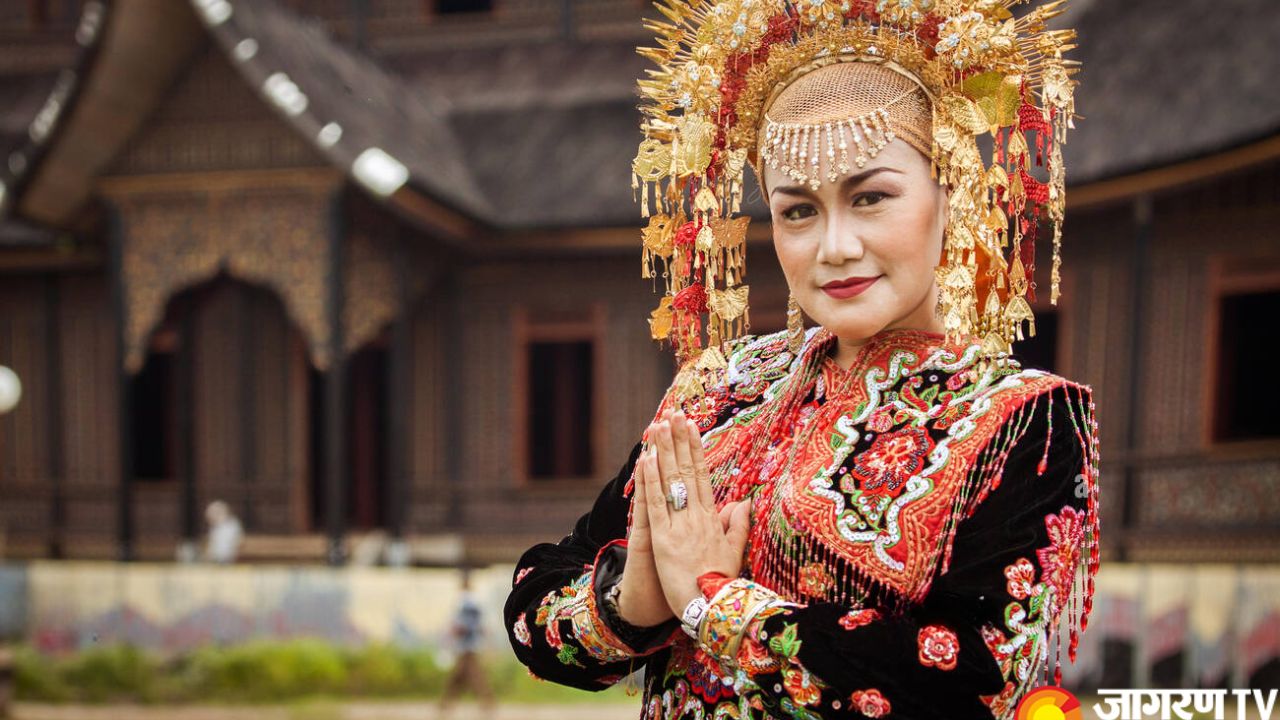International Women’s Day 2025: 6 Matriarchal Societies in The World Where Women Take The Lead

International Women’s Day 2025: International Women's Day (IWD), celebrated annually on March 8th, is a global celebration of women’s accomplishments and an appeal for gender equality. Since its establishment in the early twentieth century, this day has celebrated women's contributions to society, culture, and history while fighting for a world free of prejudices, stereotypes, and discrimination. As we work toward gender equality today, there are many countries where women already play a significant role in leadership, inheritance, and community decision-making, known as matriarchal society.
History of Matriarchy
Matriarchy, a social structure in which women play an important role in leadership, inheriting property, and decision-making, has been practiced in many communities for ages. Matriarchal societies, in contrast to male-dominated patriarchy, focus an emphasis on maternal lineage, collective decision-making, and community harmony. While often dominated by patriarchy, these societies demonstrate alternate framework in which women take charge, promoting balance and prosperity. In honour of International Women’s Day 2025, let us dive into the history of these matriarchal societies led by women.
Mosuo, China
The Mosuo people of China, who live near Lugu Lake in the Himalayas, are one of the world’s most well-known matriarchal communities. Women are the heads of households; property is passed down through the maternal line, and they make important financial and family decisions. Mosuo culture has a unique tradition known as the “walking marriage,” in which men and women build relationships without traditional marriage structure. The mother’s family raises the children.
Bribri, Costa Rica
The Bribri people, a native group in Costa Rica’s Talamanca region, follow maternal traditions in which women inherit land and play important roles in preserving the cultural and spiritual history. Bribri women are the sole property owners, ensuring financial security and environmental conservation. They are also actively involved in traditional ceremonies and hold authority in social and family affairs.
Khasi, India
Women inherit property in the Khasi community of Meghalaya, India, and the mother’s name is passed down through the blood line. Khasi women have a high level of social and economic autonomy, with the youngest daughter inheriting ancestral property. Despite modern influences, the Khasi people maintain traditional maternal traditions, giving women control over family income and decision-making.
Umoja, Kenya
Umoja, a village in Kenya, was founded to provide a safe haven for women facing gender-based abuse, forced marriages, and oppression. Rebecca Lolosoli founded this all-women community in 1990, and it works independently, with women dominating leadership, entrepreneurship, and social welfare efforts. Umoja is a men-banned village where women rely on tourism, crafts, and community businesses for fulfilling basic necessities.
Minangkabau, Indonesia
The Minangkabau people of Indonesia, the world’s biggest maternal society, practice a system in which property, land, and family names are passed down through female lineage. Women oversee family issues, while men are involved in external affairs and religious leadership. This balance promotes social and financial stability for Minangkabau households. Unlike many patriarchal systems, Minangkabau society promotes female leadership while maintaining gender harmony.
Akan, Ghana
The Akan people of Ghana have a familial structure in which lineage and inheritance are decided on the mother’s side. Women play an important role in sustaining social order, especially in governance, where female leaders have major power in selecting and advising leaders. Women play an important part in decision-making in Akan society, which encourages a culture of gender equality and respect.
Related Videos
-
17 Jun, 2025
International Yoga Day 2025: Know Date, Theme, History, Significance, And More ...
-
16 Jun, 2025
International Day of Yoga 2025: अंतरराष्ट्रीय योग दिवस; जानें तिथि, इतिहास, थीम और ...
-
09 Jun, 2025
Father’s Day 2025: When to Celebrate Father’s Day, Know Date, History, Significance and More ...
-
02 Jun, 2025
यह भी पढ़ें
-
09 Apr, 2023
IPL 2023 : आज हैदराबाद और पंजाब में कौन मारेगा बाजी, ऐसी हो सकती है दोनों टीम की प्लेइंग इलेवन
-
09 Apr, 2023
कोरियन दूल्हे ने इंडियन स्टाइल में की शादी, घोड़ी भी चढ़ा और भांगड़ा भी किया, वीडियो हुआ वायरल
-
09 Apr, 2023
-
09 Apr, 2023
आकांक्षा दुबे मामले में आरोपी समर सिंह को भीड़ ने दौड़ाया, 14 दिन की न्यायिक हिरासत








